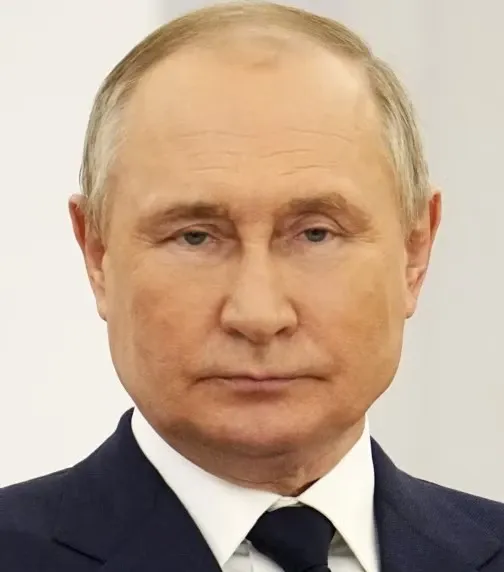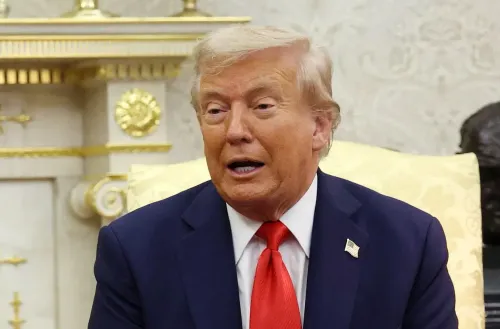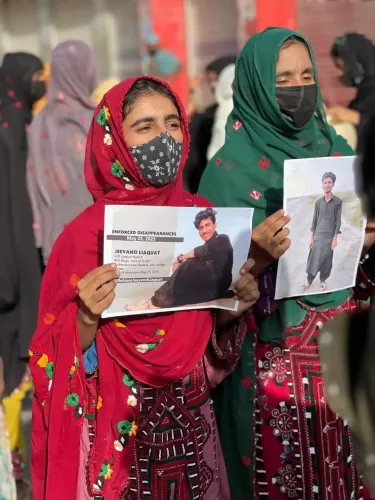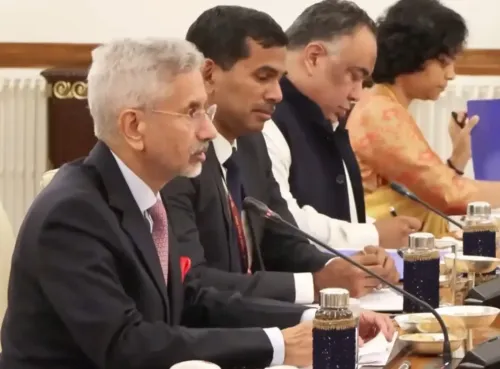Is Putin Ready to Meet Zelensky in the 'Final Phase' of Peace Talks?

Synopsis
Key Takeaways
- Putin's readiness to meet Zelensky signals potential progress in peace talks.
- Legitimacy remains a significant hurdle in negotiations.
- Russia's military objectives continue amidst diplomatic discussions.
- Ukraine's electoral process is hindered by martial law.
- International perceptions of Zelensky's legitimacy vary widely.
Moscow, June 19 (NationPress) — Russian President Vladimir Putin announced on Thursday his willingness to engage in talks with Ukrainian President Volodymyr Zelensky during the "final phase" of negotiations, while simultaneously questioning the legitimacy of his counterpart.
At a press conference in St. Petersburg, Putin stated, "I am prepared to meet with him (Zelensky) if it's some kind of final phase." He emphasized that Russia aims to conclude the conflict in Ukraine "as soon as possible," preferably through peaceful means, and is open to continued negotiations if Kyiv and its Western allies are also willing to participate.
Furthermore, Putin expressed that he is ready to meet Zelensky, asserting, "Russia does not care who represents Ukraine in negotiations, but insists that any final agreement must be signed by legitimate authorities." He mentioned that both Russian and Ukrainian negotiators are set to resume direct discussions after June 22.
"I am open to meeting anyone, including Zelensky," Putin reiterated. "The main concern is not about who negotiates but who will sign any resulting documents. We are addressing serious issues where legal legitimacy is paramount, not political messaging."
He warned that if peaceful negotiations fail, Russia will pursue its objectives in Ukraine through military action. "If we cannot reach an agreement through peaceful means, we will accomplish our goals by military means," he stated.
Putin reiterated that the goal of Russia's special military operation is to demilitarize Ukraine, stripping it of the ability to maintain military forces that threaten Russia.
The Kremlin has long sought to frame Zelensky as "illegitimate" in an effort to undermine Kyiv. Kremlin spokesperson Dmitry Peskov noted on February 18 that while Putin is open to discussions with Zelensky, "the legal aspects concerning his legitimacy" must be taken into account.
Ukraine's allies largely dismissed this narrative until US President Donald Trump seemed to echo Kremlin sentiments, describing Zelensky as a "modestly successful comedian" who turned into a "dictator" avoiding elections.
Due to martial law declared on February 24, 2022, immediately after the war began, Ukraine has not conducted elections. Ukrainian law requires elections to be safe, equal, and uninterrupted—conditions currently impossible amid ongoing Russian assaults on civilians and vital infrastructure.
On June 14, Putin also informed President Trump that Moscow is prepared to engage in another round of peace talks with Kyiv following June 22, contingent on the completion of prisoner exchanges and fallen soldier negotiations.
When asked about the possibility of speaking with Germany's Chancellor Friedrich Merz, Putin replied, "If the Federal Chancellor wishes to call and talk, we have always stated that we do not decline any contacts. We are open to resuming communication." However, he expressed skepticism regarding Germany's role as a mediator in the conflict: "I question whether Germany can contribute more than the US in mediating our discussions with Ukraine. A mediator should be neutral, and with German tanks and weaponry on the battlefield, it raises significant questions."









